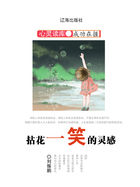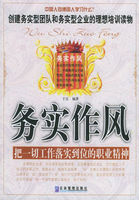At first, I told her, I had been altogether at a loss how I could do anything to battle against the aimless muddle of our world; I had wanted a clue--until she had come into my life questioning, suggesting, unconsciously illuminating."But I have done nothing,"she protested.I declared she had done everything in growing to education under my eyes, in reflecting again upon all the processes that had made myself, so that instead of abstractions and blue-books and bills and devices, I had realised the world of mankind as a crowd needing before all things fine women and men.We'd spoilt ourselves in learning that, but anyhow we had our lesson.Before her I was in a nineteenth-century darkness, dealing with the nation as if it were a crowd of selfish men, forgetful of women and children and that shy wild thing in the hearts of men, love, which must be drawn upon as it has never been drawn upon before, if the State is to live.I saw now how it is possible to bring the loose factors of a great realm together, to create a mind of literature and thought in it, and the expression of a purpose to make it self-conscious and fine.I had it all clear before me, so that at a score of points I could presently begin.The BLUE WEEKLY was a centre of force.Already we had given Imperialism a criticism, and leavened half the press from our columns.Our movement consolidated and spread.We should presently come into power.Everything moved towards our hands.We should be able to get at the schools, the services, the universities, the church; enormously increase the endowment of research, and organise what was sorely wanted, a criticism of research; contrive a closer contact between the press and creative intellectual life; foster literature, clarify, strengthen the public consciousness, develop social organisation and a sense of the State.Men were coming to us every day, brilliant young peers like Lord Dentonhill, writers like Carnot and Cresswell.
It filled me with pride to win such men."We stand for so much more than we seem to stand for," I said.I opened my heart to her, so freely that I hesitate to open my heart even to the reader, telling of projects and ambitions I cherished, of my consciousness of great powers and widening opportunities....
Isabel watched me as I talked.
She too, I think, had forgotten these things for a while.For it is curious and I think a very significant thing that since we had become lovers, we had talked very little of the broader things that had once so strongly gripped our imaginations.
"It's good," I said, "to talk like this to you, to get back to youth and great ambitions with you.There have been times lately when politics has seemed the pettiest game played with mean tools for mean ends--and none the less so that the happiness of three hundred million people might be touched by our follies.I talk to no one else like this....And now I think of parting, I think but of how much more I might have talked to you."...
Things drew to an end at last, but after we had spoken of a thousand things.
"We've talked away our last half day," I said, staring over my shoulder at the blazing sunset sky behind us."Dear, it's been the last day of our lives for us....It doesn't seem like the last day of our lives.Or any day.""I wonder how it will feel?" said Isabel.
"It will be very strange at first--not to be able to tell you things.""I've a superstition that after--after we've parted--if ever I go into my room and talk, you'll hear.You'll be--somewhere.""I shall be in the world--yes."
"I don't feel as though these days ahead were real.Here we are, here we remain.""Yes, I feel that.As though you and I were two immortals, who didn't live in time and space at all, who never met, who couldn't part, and here we lie on Olympus.And those two poor creatures who did meet, poor little Richard Remington and Isabel Rivers, who met and loved too much and had to part, they part and go their ways, and we lie here and watch them, you and I.She'll cry, poor dear.""She'll cry.She's crying now!"















